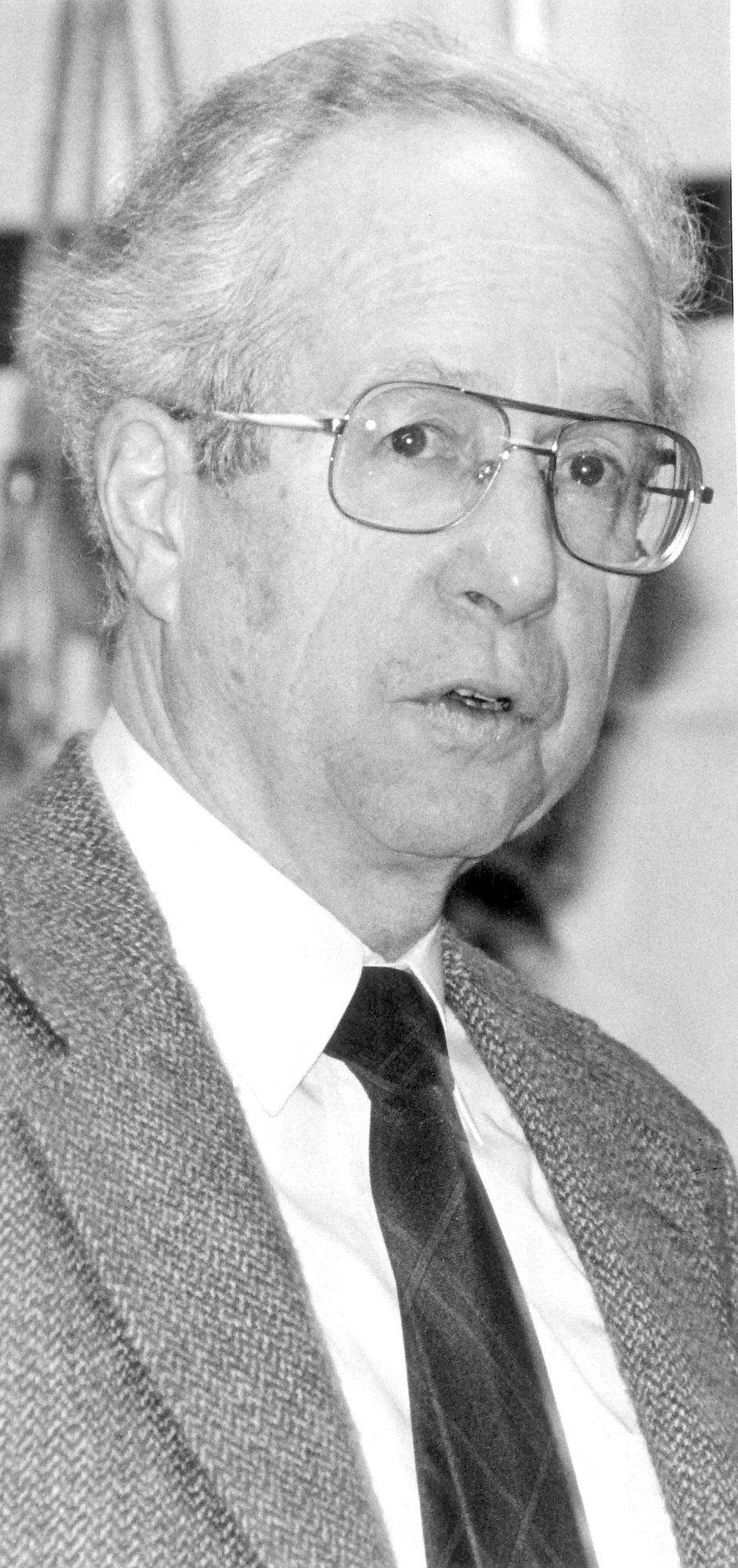Two of the editors who had the most profound influence on me were John Moran and Fred Goddard.
Each taught me basic tenets of local journalism. Fred stressed that obituaries were often the best, and most widely-read, stories in the newspaper. And John, who was our managing editor for much of my early tenure here, always strove to find the local angle whenever he could when a major story came along.
Sometimes that presented itself right away, such as when he knew of two Swampscott people who were in Candlestick Park in San Francisco when a major earthquake hit during Game 3 of the 1989 World Series.
And sometimes you have to look harder, such as when John asked me to basically hide in the bushes in the parking lot of a Swampscott temple on Yom Kippur to ascertain whether Joan Kennedy accompanied Dr. Jerry Aronoff, the noted pain management specialist, to services. She did. And she must have had pretty good spidey senses too, because as she went by and spotted me hiding, she turned and glared at me. It was not a friendly glare.
Al Silverman was not only a writer’s writer, he was a pioneer in the art of marketing authors and books.
As editor for Sport Magazine, he’s the one who took part in the ceremonial presentation of cars to all the MVPs of professional sports championship games/series. Of course, Green Bay Packer Paul Hornung, when he won his, sold the car and somehow forgot to declare its full market value to Uncle Sam.
Silverman was a serious writer, whose “The Time of the Lives” gave an accurate summation of the history of book publishing after World War II. It may sound like a dry topic, but not to those of us who enjoy reading.
So what’s this got to do with anything? Plenty. Elwyn (Al) Harmon Silverman was born and raised — you guessed it — in Lynn. Not only that, Silverman graduated from Lynn English, and grew up a Boston Braves fan (as did my father, for what it’s worth). One of his many noteworthy sports biographies was about Braves pitcher Warren Spahn.
This is why it’s so vital to leave people with enduring legacies when they depart this mortal coil. I never saw Fred Goddard get more worked up than when he sensed that reporters were writing incomplete obits. It used to be a policy around here that every time we got an obituary, we had to go to the paper’s library (or, as it is called, the morgue) and flesh out the funeral director’s information with available clips. There was not always a lot of information — perhaps just a nugget or two that helped give the obit more substance. But, as Fred said, this was the final biography on the person, and it was up to us to be as accurate, and complete, as we could.
The New York Times certainly did its job with Al Silverman’s obituary. He died last week at the age of 92, and our publisher read his obit from beginning to end. I confess that I did not. It’s a good thing he did, though, because he called me and, well, here we are.
We haven’t even mentioned the most astounding thing about Al Silverman. He wrote a book about former Chicago Bears running back Gale Sayers (“I Am Third”), who was Walter Payton before Walter Payton was.
There was a chapter in that book called “Pick,” that dealt with the life and death of Sayers’ teammate, Brian Piccolo. That chapter formed the basis of one of the all-time tearjerkers: the TV movie “Brian’s Song” starring James Caan and Billy Dee Williams.
Unless you are callously hard-hearted, you cannot watch this movie about Piccolo, who died of cancer while with the Bears, without either crying or wanting to cry. The movie won an Emmy for outstanding single program.
Silverman left sportswriting to join the Book-of-the-Month Club mail-order concern as executive vice president, where he worked diligently to market writers. According to the Times, he understood that marketing was a more important ingredient to publishing than people had previously believed. It is said he loved working with writers, and that they loved working with him in return.
But the allure of writing about sports figures never really leaves you. One of the books he wrote after he retired from a stint at Viking Press was “It’s Not Over Til It’s Over,” a biography about New York Yankee great Yogi Berra. He also wrote about Mickey Mantle, Joe DiMaggio and Frank Robinson.
Two months ago, thanks to diligent reading of obits, we found out Verna Bloom — the actress who starred in “High Plains Drifter” and “Animal House (as Mrs. Dean Wormer) — was born and raised in Lynn. Now we find out that one of the most prolific writers of our times, Silverman, lived here.
Silverman himself would probably back John Moran, Fred Goddard, and those of us who remember both fondly when I say that this is a valuable lesson for young writers. Don’t treat obituaries as menial tasks. They are the last testament to the people about whom they are written. And all stories, no matter where they come from, have relevance. You just have to find out what it is.

